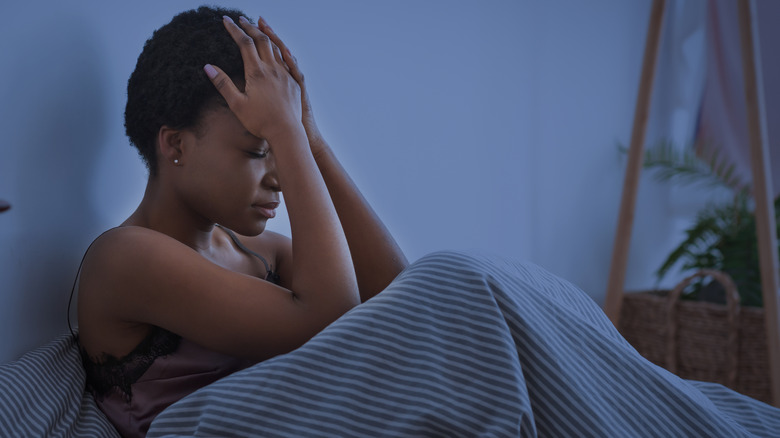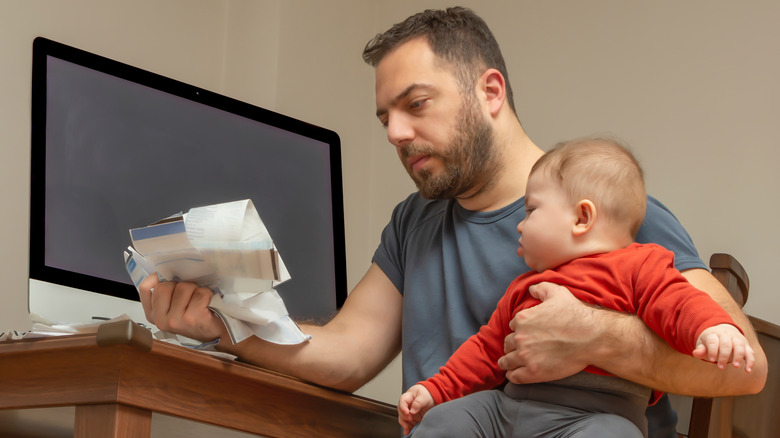How The Pandemic Is Taking A Toll On Our Sleep Habits
People all across the globe feel the stress of COVID-19 permeating their emotional and mental well-being. One of the many ways pandemic stress manifested itself for both individuals and families was through sleep disruptions.
In a Journal of Clinical Sleep Medicine study conducted from March 26 through April 26, 2020, individuals across 49 countries were surveyed. Results indicated that 58% of participants were "unsatisfied" with their quality of sleep, with 40% reporting worse sleep since the pandemic. Additionally, a 20% increase in sleeping pill usage was noted amongst respondents. Now, over two years into the pandemic, it appears it continues to have a hold on our sleep habits.
A survey issued by Health Day in connection with Harris Poll found that one-third of U.S. adult respondents are currently experiencing an increase in tiredness compared to how they felt prior to March 2020, with young adults and parents feeling among the most tired. The poll indicated that the average number of hours participants were sleeping per night was 6.5. Citing mental health difficulties among their reasons for decreased sleep, 57% attributed their sleep troubles to having too much on their mind, while 49% reported anxiety as the cause.
The impact of pandemic-related stress on sleep
According to the National Sleep Foundation, adults between the ages of 18 and 65 or older are recommended to get between seven to nine hours of sleep nightly. Clinical psychologist and member of the board of directors of the American Academy of Sleep Medicine Jennifer Martin explained to Vox that consistently sleeping less than seven hours a night increases the chances for the development of conditions such as diabetes or depression. Even more damaging, receiving less than six hours of sleep a night continuously can lead to cardiovascular disease and premature death.
In an interview with Health Day, Dr. Raj Dasgupta, a clinical associate professor with the University of Southern California's Keck School of Medicine, commented on the relationship between pandemic-related stress and sleep, saying, "A lack of separation of work and home life is fatiguing. There's all kinds of additional stress that's come with the pandemic, and stress is fatiguing in and of itself."
The poll also explored the ways in which Americans are attempting to cope with their ongoing feelings of tiredness, including stress reduction techniques and anxiety management. One common method reported was the use of sleeping medication. Some 63% of respondents reported using either over-the-counter sleeping pills, sleep aids, or prescription sleep medications. Alternatively, 36% of respondents cited drinking alcohol as a means to boost their quality of sleep. However, Dr. Raj Dasgupta told Health Day that the ongoing use of sleep medications or alcohol could ultimately lead to further sleep disruptions, grogginess, and other side effects.


